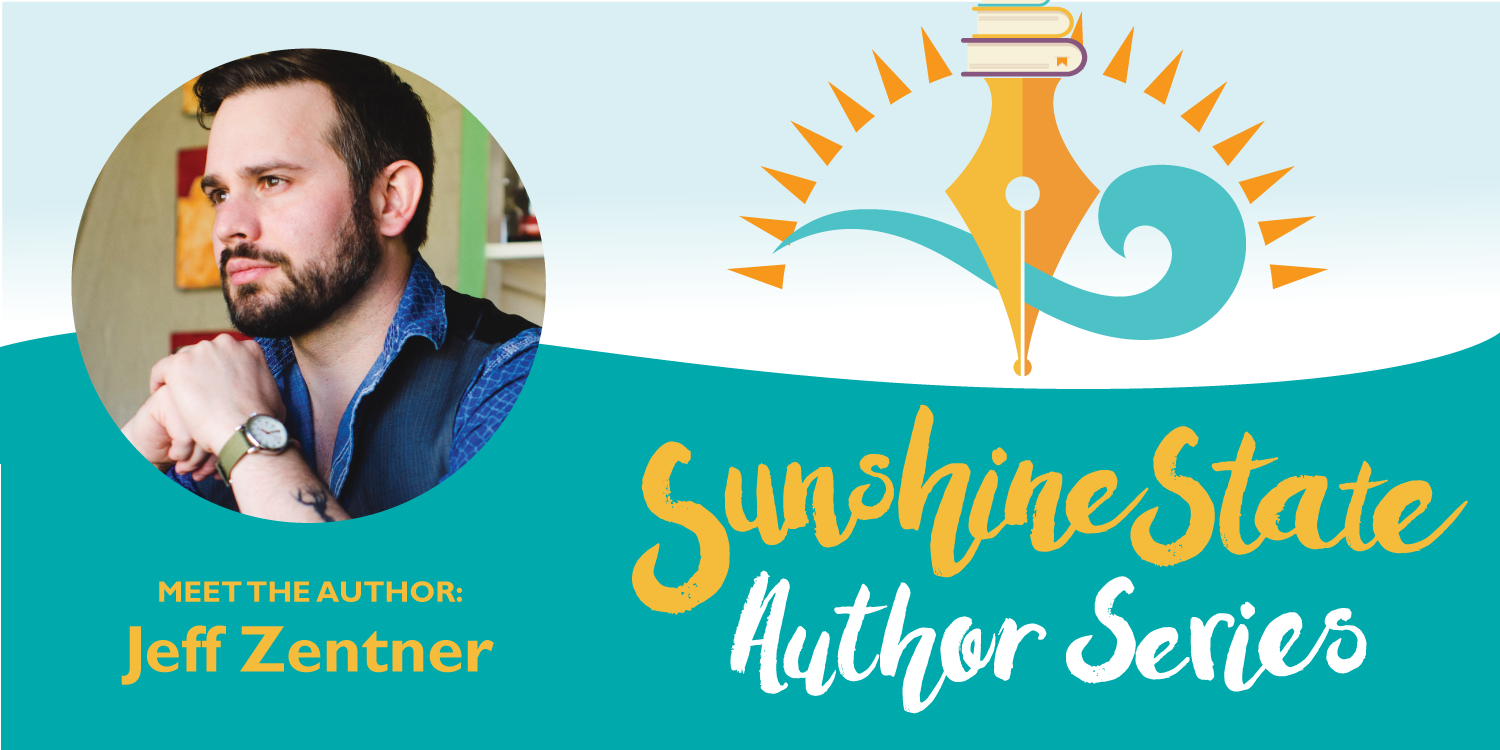Jeff Zentner is the author of The Serpent King, which received the William Morris Award for best young adult debut book and appears on the 2017–18 Florida Teens Read list. He is also the author of Goodbye Days, published in 2017. Zentner’s writing career began as a songwriter. He is an accomplished guitarist and singer, having released solo albums and recorded with the Southern Gothic trio Creech Holler and with Iggy Pop, Nick Cave and Debbie Harry, among others. Zentner lives in Nashville, Tennessee.
The author will host two events as part of our Sunshine State Author Series — a writing workshop for teens at the Edgewater Branch on Tuesday, March 7 at 3 p.m., followed by a meet the author event at the South Creek Branch on Tuesday, March 7 at 7 p.m. Staff member Sarah F. had the opportunity to speak with Zentner about his transition from musician to author and his advice to aspiring young writers.
Sarah Fisk: What is your favorite part of writing books/being an author?
Jeff Zentner: Definitely getting to meet and interact with my readers. I got into writing specifically because I wanted to write for teenagers, and it’s been such a rewarding experience.
SF: Which book first made you realize that words have power?
JF: Reading Stephen King as a kid made me realize that words could make us feel things strongly – fear in the case of Stephen King.
SF: Do you have any writing quirks, superstitions or obsessions?
JF: Here’s a quirk: I draft my books on my iPhone on the bus. With my right thumb only. Eighty percent of my three books have been written on my phone, on the bus.
SF: What inspired you to begin writing?
JF: I was a musician for many years, and started volunteering at Tennessee Teen Rock Camp and Southern Girls Rock Camp. I really fell in love with young adults and the way they interact with the art they love. It made me want to create art for their age group, but I was both too old at that point to make the kind of music marketed to young adults and didn’t know how. So I looked around for an art I could create that would let me reach young adults. Writing it was.

SF: Can we talk about your characters? How do you go about creating them and getting to “know” them?
JF: I won’t start a book until I know the characters very, very well. That means that the first three or four months of “writing” a book are me just taking a lot of long walks and thinking about my characters, listening to their voices. I’ll only start writing when I feel assured that they’ll lead me, by the hand, through the book.
SF: A theme of grief runs through your books. Is there a reason for that? How do you go about processing these characters’ feelings?
JF: Yes, because grief frightens me, and I have a weird quirk where I have to ride out and confront my fears in the field. I process my characters’ feelings by putting myself in their shoes, and imagining how I would process such big, important feelings.
SF: You were a musician before you became an author. How have those two art forms intersected for you?
JF: I mentioned how it led me to want to create for young adults. It also helped me understand that I was an artist and got a lot of satisfaction from telling my own stories. Writing songs gave me an appreciation for words and making each one count, and for the musical rhythms of language.
SF: What is your one most-important piece of advice for aspiring authors?
JF: Read as many of the best books as you possibly can. Read constantly.

